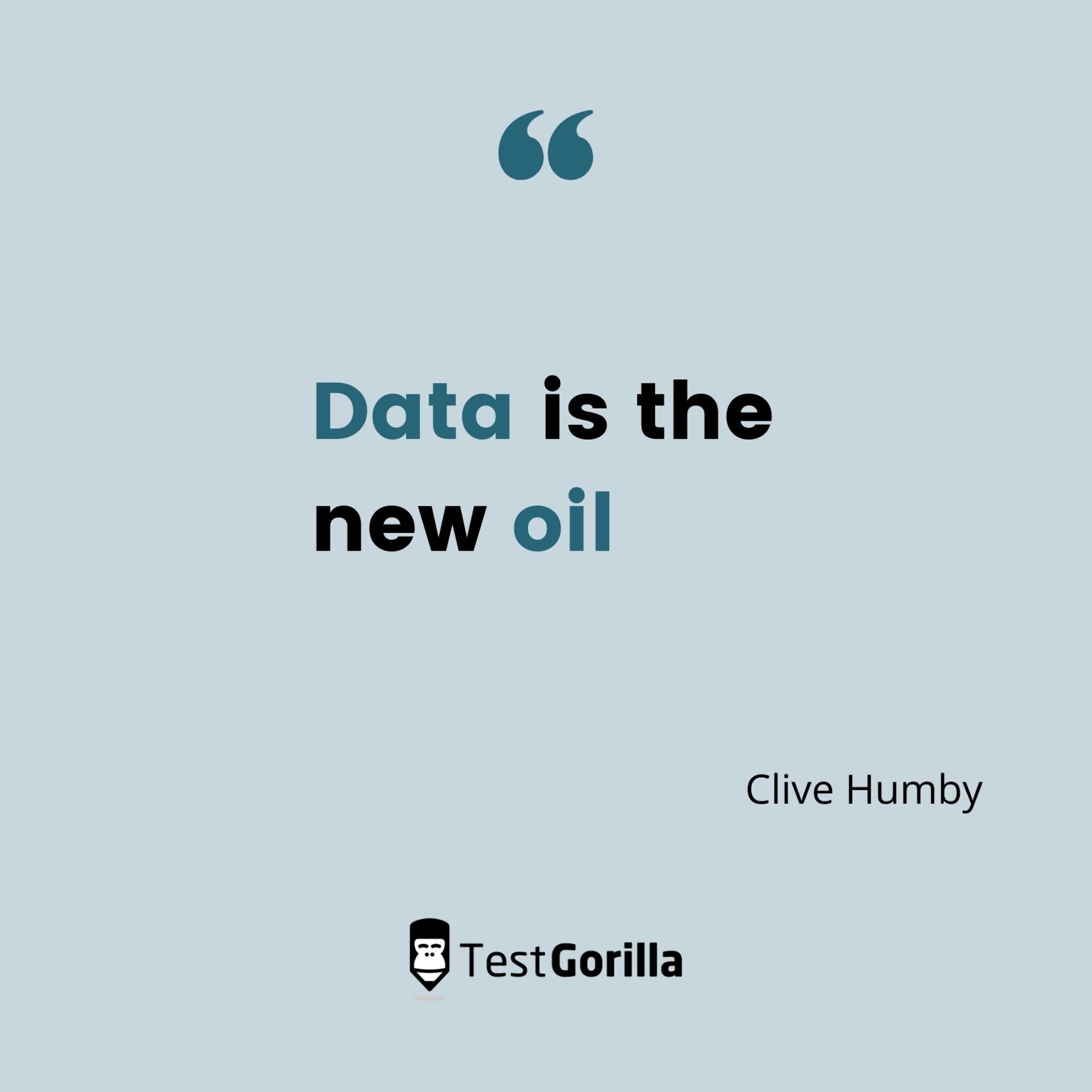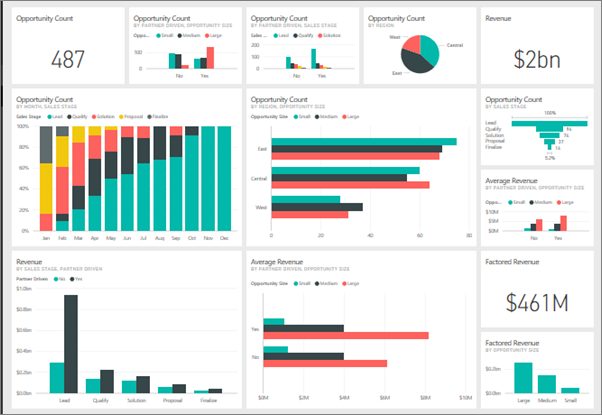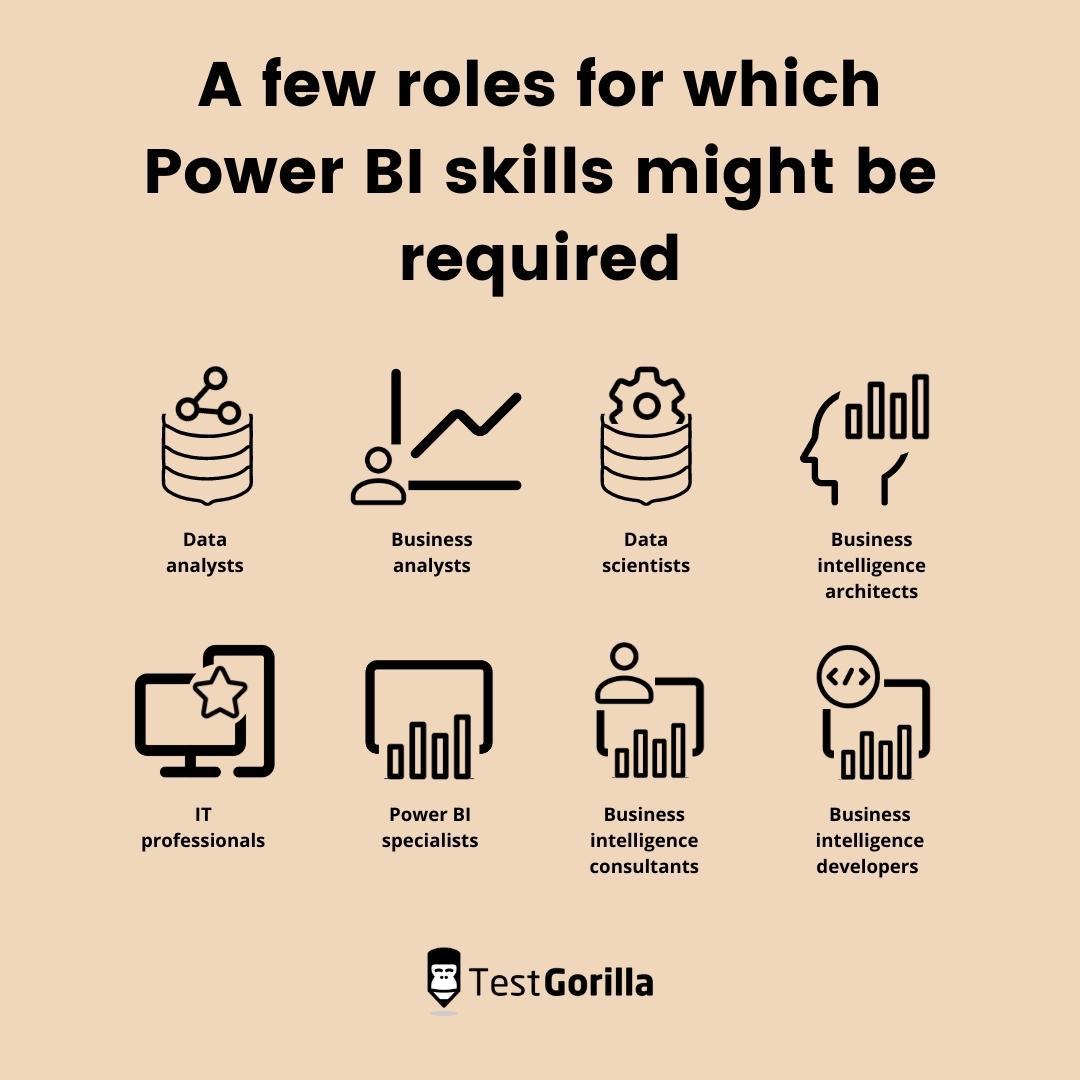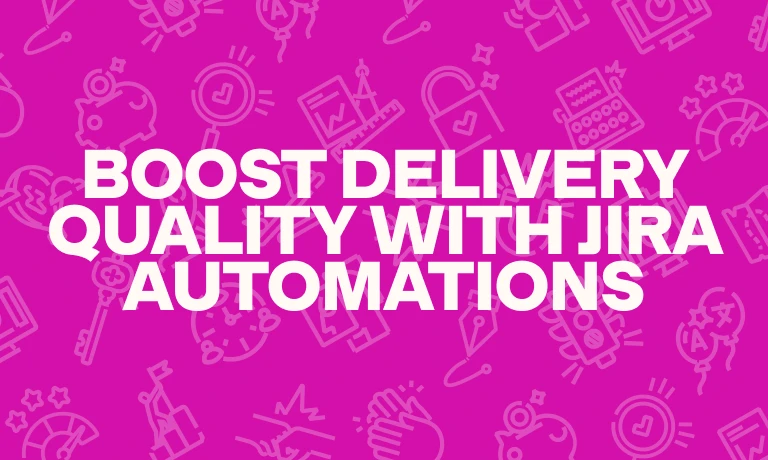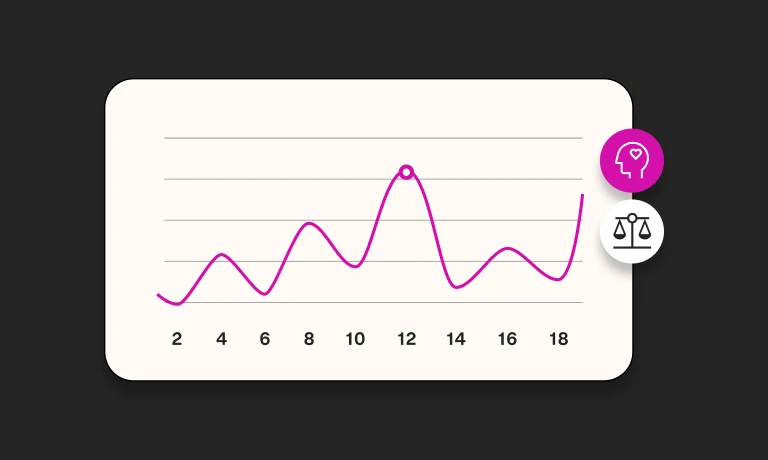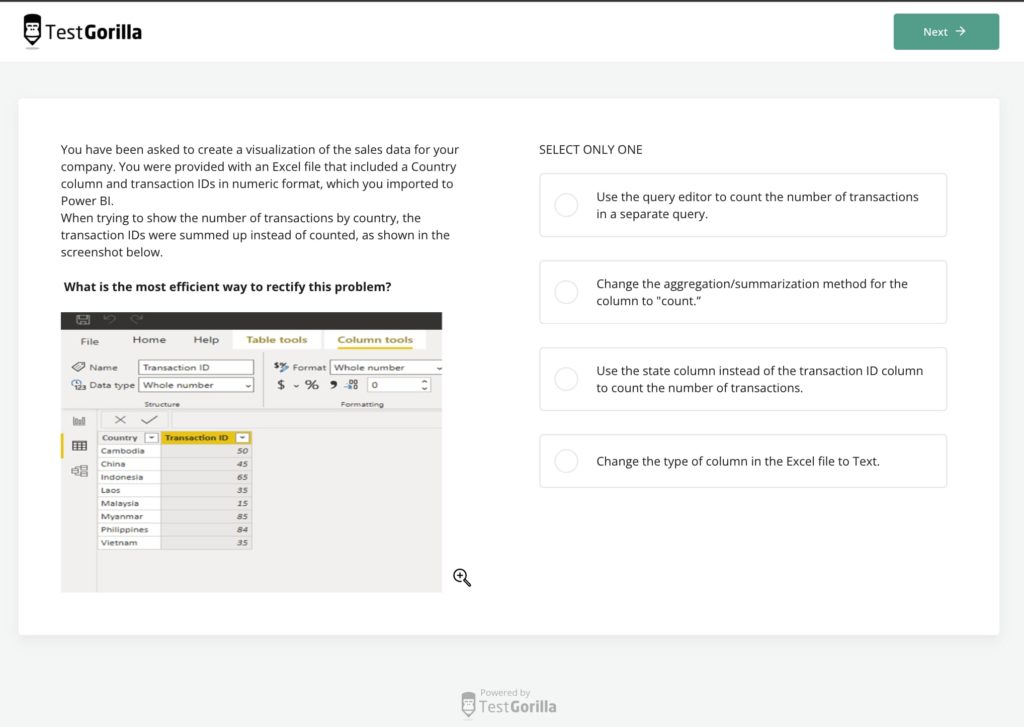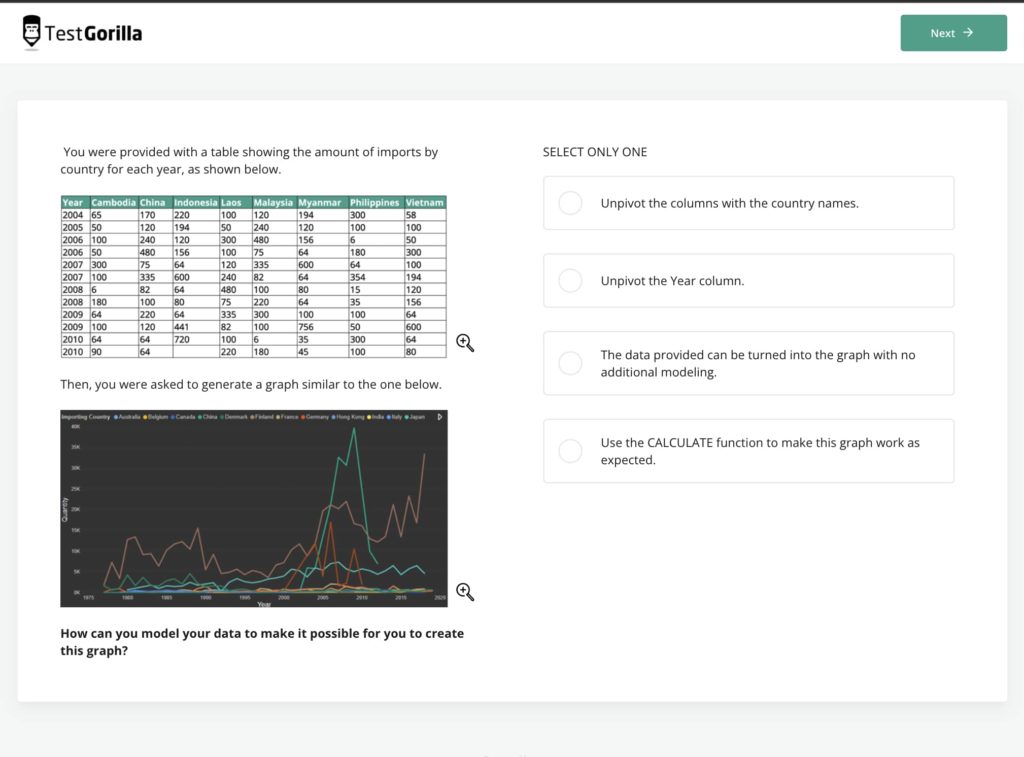“Data is the new oil” is a phrase thrown about since 2014 when Clive Humby, a mathematician and data science entrepreneur, likened data’s raw state to that of crude, unrefined oil.
Data, like crude oil, isn’t particularly useful: It must be broken down, analyzed, and refined to be used in any decision-making process.
Today’s demand for candidates skilled in data analytics and business intelligence is high.
But there’s one tool that has topped Gartner’s Magic Quadrant for business intelligence platforms leaderboard for 15 consecutive years: Microsoft’s Power BI.
Here, we explore why hiring candidates with Power BI skills is essential for modern organizations, which skills you should look out for, and how you can easily test candidates’ Power BI skills before hiring them.
Table of contents
What is Power BI?
Power BI is a cloud-based business intelligence platform that provides a suite of reporting, data visualization, and business intelligence tools.
The platform gives businesses the power to transform raw data into actionable information by enabling users to clean, analyze, and visualize data.
The Power BI platform converts data from hundreds of data sources and builds rich interactive dashboards and reports that you can distribute to both internal and external users.
What are the benefits of Power BI for your business?
The Power BI platform is a powerful tool that turns complex data into digestible, concise formats that anyone across your organization can understand. Organizations create swathes of data every day that can be used to influence and improve decision-making.
At its core, Power BI enables businesses to predict future outcomes, gain valuable insights into their data, and leverage real-time insights to make better decisions.
Here are just a few benefits of Power BI for your business:
1. Power BI can access data from multiple sources
Power BI can access huge volumes of data from hundreds of sources to create intelligent visualizations. Unlike Microsoft Excel, which has stricter limits to the amount and type of data it can work with, Power BI can access data from Excel, CSV, XML, JSON, PDF, and multiple databases.
2. It’s an affordable business intelligence tool
Businesses are often reluctant to invest in a business intelligence tool since many – especially legacy solutions – have high costs for implementation, maintenance, and customer support.
Although Power BI was built as an enterprise-level tool, its cloud-based service is affordable for more than just large companies. In fact, Power BI desktop is free, while Power BI Pro costs only $9.99 per user/month.
Considering the value businesses can get from the platform, Power BI is an incredibly cost-effective tool for businesses of all sizes.
3. Your entire organization can access visually rich reports and dashboards
Data isn’t everyone’s strong point. Reports created by data professionals and disseminated across organizations can often be difficult for others to grasp.
However, the Power BI platform enables users to create seemingly simple reports, dashboards, tables, charts, and maps from highly complex data that everyone can understand.
4. You can access real-time data in user-friendly formats
Power BI dashboards update in real-time as data is pushed or streamed in, providing you with the most up-to-date information you need to solve problems quickly, identify opportunities, and mitigate potential risks.
The best insights on HR and recruitment, delivered to your inbox.
Biweekly updates. No spam. Unsubscribe any time.
Why Power BI skills are essential for modern businesses
As user-friendly and readable as Power BI’s reports and dashboards are, using the platform to create them from raw data requires experienced professionals with specific Power BI skills.
Power BI skills contribute to greater insights but are used mainly by data analysts and business intelligence professionals to create data models and reports.
Data-analytics skills are generally in high demand. According to the Bureau of Labor Statistics (BLS), the employment of research analysts – including data analysts – is expected to grow by 25% from 2019 to 2029.
Compared to the average of all other occupations, this is a rapid growth rate.
Here are just a few roles for which Power BI skills might be required:
Data analysts
Business analysts
Data scientists
Business intelligence architects
IT professionals
Power BI specialists
Business intelligence consultants
Business intelligence developers
The growth in Power BI’s user base has also fuelled an increase in the number of open roles for Power BI professionals, including:
Power BI data analysts
Power BI developers
Power BI consultants
Power BI managers
Basically, if you’re not hiring for Power BI skills, you can be sure that your competitors are.
Top nine Power BI skills to look for in candidates
Professionals skilled in Power BI will help your business put data at the front and center of your decisions.
Let’s take a look at both the role-specific and the soft skills you should prioritize when hiring.
Role-specific Power BI skills
Data analytics
Importing data
Manipulating data
Data modeling in the query editor
Table relationships and Data Analysis Expressions (DAX)
Building data visualizations and reports
Soft skills for Power BI candidates
In addition to technical skills, it’s important to hire candidates with the soft skills necessary for data analysis roles. In particular, you should be looking for candidates who have the following:
Communication skills: Candidates should be able to convey complex, technical concepts to others – not just through their Power BI dashboards and reports, but via face-to-face communication, too.
Problem-solving skills: Candidates should be able to evaluate complex situations, analyze data, and reach intelligent conclusions in order to deliver effective solutions.
Good attention to detail: As they say, the devil is in the detail. Candidates will be expected to work with large volumes of data, and they must have a keen eye for smaller details, errors, and flaws in the data to make sure your business is working with only the cleanest, most accurate data.
How to recruit and hire candidates with Power BI skills with TestGorilla
CVs can’t help you evaluate a candidate’s skills. In fact, they’re a completely unreliable predictor of both future job success and skills.
A reliable Power BI testing process involves pre-screening tests that can help you assess and rank each candidate in an unbiased environment.
That’s why we at TestGorilla built the Power BI test (created by a subject-matter expert), which covers four key testing areas:
Power BI online
Data modeling in the query editor
Table relationships and DAX
Data visualization
Our Power BI testing tool evaluates candidates’ data preparation and visualization skills and how well they work with Power BI online.
Below are a couple of sample questions to give you a better understanding of how TestGorilla’s Power BI test works:
Candidates who perform well on the test can deftly manage complicated tables using the built-in query editor, create the required calculations using DAX functions and tables, and present their work with visuals and reports.
TestGorilla’s pre-employment skills assessments also allow you to add up to five individual tests that you decide are relevant to the job role, enabling you to create a well-rounded evaluation process.
These tests form one complete assessment. Candidates take each test in the assessment in one go. You’ll then receive the results of each test to help you decide which candidates you want to progress to the next stage of the hiring process.
Use TestGorilla’s Power BI test to hire the best
The faster you can transform your data into meaningful insights, the faster your business can make informed decisions that will help it thrive.
However, not only are Power BI skills important for modern businesses, but there’s also a data analytics skills shortage, meaning that organizations are competing for the same candidates. Smart businesses are fighting the talent shortage by implementing skills-based hiring practices into their recruitment.
TestGorilla’s Power BI testing tool helps you quickly identify which candidates have the right technical skills for your open role. However, by using the Power BI test in conjunction with other cognitive ability and situational judgment tests, you can easily pinpoint candidates with the right combination of hard and soft skills.
It’s time to stop relying on CVs to hire candidates for important technical positions. Book a demo with our sales team for more information on how to use our Power BI test to hire the best candidates, or sign up for a free plan today to check it out for yourself.
You've scrolled this far
Why not try TestGorilla for free, and see what happens when you put skills first.


